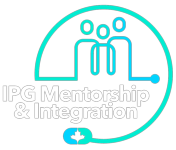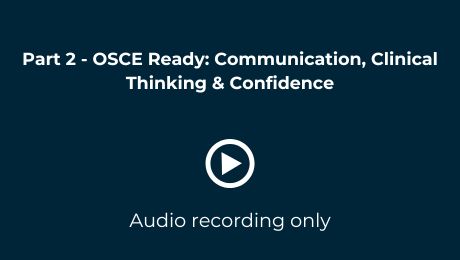
Session recording
PART 2: OSCE Ready: Communication, Clinical Thinking & Confidence (August 23, 2025)
Learn what to expect during the Objective Structured Clinical Examination (OSCE), including the format, timing, and types of stations commonly encountered--such as patient counseling, clinical decision-making, and problem-solving scenarios. This session will guide you through how to effectively prepare for patient interaction stations, with a focus on building strong clinical communication skills, demonstrating empathy, and responding appropriately to both verbal and non-verbal cues. You'll also gain insight into strategies for structured thinking and clinical reasoning, enabling you to confidently assess situations, prioritize patient needs, and deliver safe, professional care under time constraints. Whether you're new to OSCE-style assessments or looking to refine your approach, this session will help you feel more prepared and self-assured on exam day.
Featured Speaker:

Monica Micheal MPharm (she/her),
Advocate for IPG Success
Monica Micheal is a UK-trained pharmacist with a Master of Pharmacy degree. She began her Canadian licensure journey at the start of the COVID-19 pandemic—a time when resources for International Pharmacy Graduates (IPGs) were limited. After navigating the process, she successfully passed all her exams on the second attempt and completed her internship in Manitoba.
After becoming licensed, Monica worked as a relief pharmacist across Ontario and Manitoba, gaining diverse experience in both urban and rural settings. Her interest in education and mentorship led her to join PharmAchieve full-time as an instructor and curriculum developer, where she supports pharmacy professionals through exam preparation and professional integration. She draws from her own IPG journey to create engaging, practical learning experiences.
Monica continues to work part-time in independent pharmacies, staying connected to frontline practice and community needs. She is passionate about empowering IPGs, supporting high standards in pharmacy care, and bridging the gap between education and real-world application.

